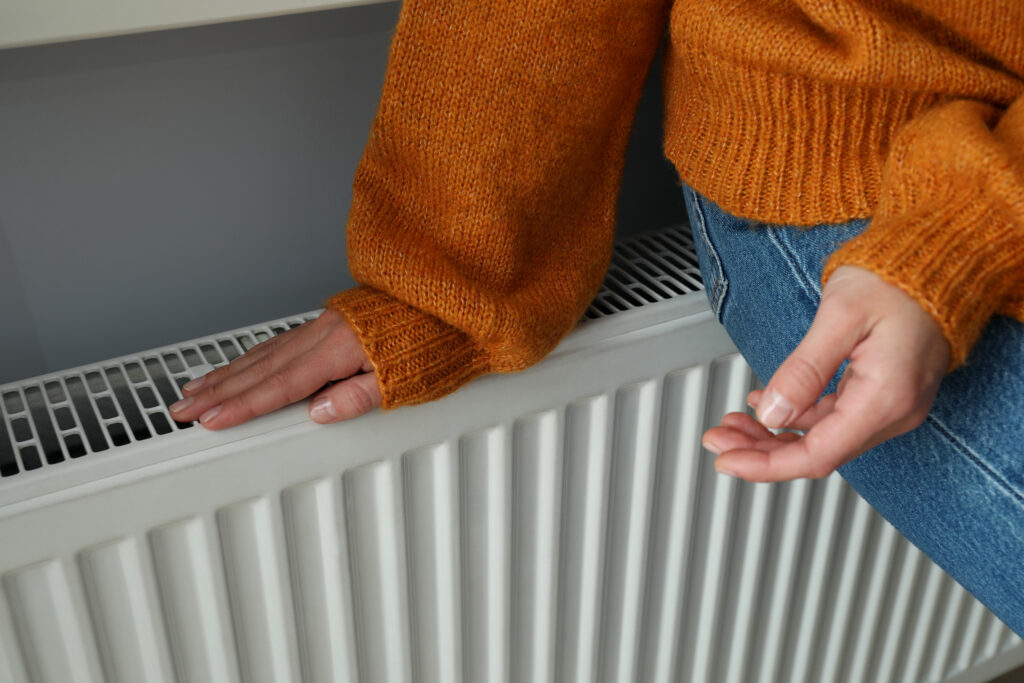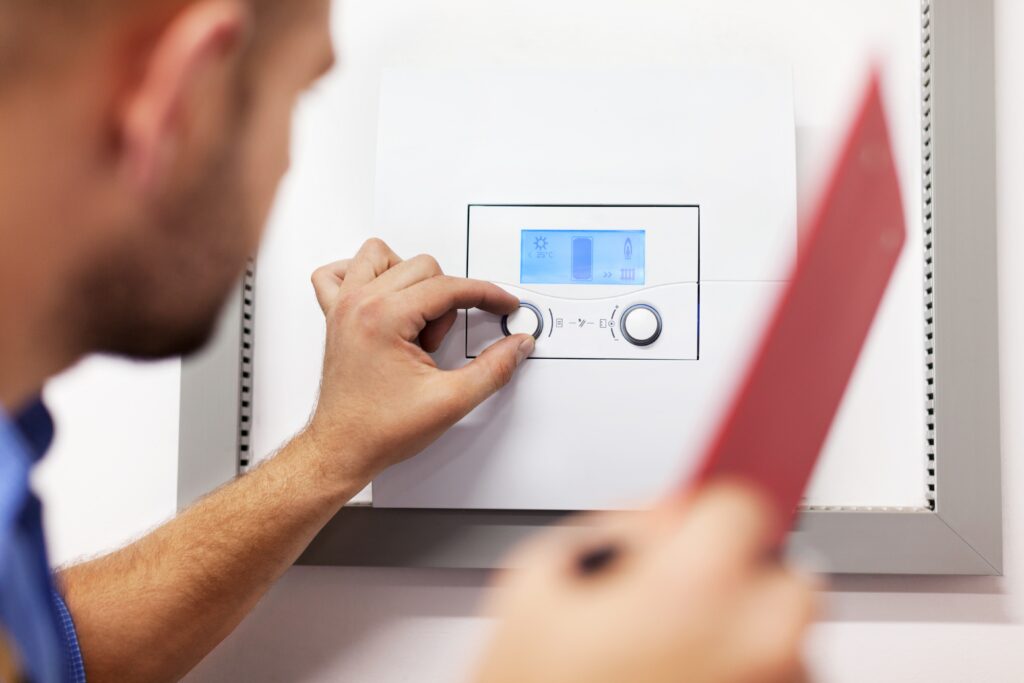What Happens During A Boiler Service?
Boilers are the heart of a home’s heating system, ensuring warmth during the cold UK winters and providing hot water year-round. However, like any other complex appliance, boilers require regular maintenance to function efficiently and safely. Understanding what a boiler service involves can help you ensure that your heating system remains in top condition, providing peace of mind and potentially saving you money in the long run.
The Importance of Regular Boiler Servicing
Regular boiler servicing is not just a routine task; it’s an essential practice that can have significant implications for the safety, efficiency, and longevity of your central heating system. By understanding the critical importance of regular boiler servicing, homeowners can better appreciate why this maintenance should never be overlooked.
First and foremost, regular servicing is vital for ensuring the safety of your household. Boilers, when not properly maintained, can become dangerous, with the potential to leak harmful gases like carbon monoxide—a colourless, odourless gas that can be fatal if inhaled. A qualified engineer, during a service, can detect early signs of such issues and take preventive measures, safeguarding your home against this silent threat.
In addition to safety concerns, the importance of regular boiler servicing extends to the operational efficiency of your heating system. Over time, boilers accumulate dust, debris, and limescale, which can hinder their performance. A boiler that operates below its optimal efficiency not only consumes more energy—leading to higher utility bills—but also works harder, which can shorten its lifespan. By keeping the boiler clean and well-maintained, you ensure that it functions at its peak, providing you with reliable heat and hot water while keeping energy costs down.
Moreover, there’s the financial aspect of neglecting regular servicing. Many boiler manufacturers require annual servicing as a condition of their warranty. Skipping these services can void your warranty, leaving you vulnerable to expensive repairs or even a complete boiler replacement in the event of a major breakdown. Regular servicing, therefore, is not just a matter of maintaining the boiler’s performance, but also of protecting your investment in the heating system.
Lastly, regular boiler servicing is an environmentally responsible practice. A well-maintained boiler is more efficient, using less fuel to achieve the same level of heating. This reduction in fuel consumption lowers your carbon footprint, making your home more environmentally friendly. In an era where sustainability is increasingly important, ensuring that your boiler runs efficiently is a small but significant step towards reducing your environmental impact.
In summary, the importance of regular boiler servicing cannot be overstated. It is a crucial practice for maintaining safety, ensuring efficiency, protecting your warranty, and contributing to environmental sustainability. By committing to regular boiler maintenance, you can enjoy a warm, safe, and cost-effective home all year round.

What Does A Boiler Service Entail
A boiler service involves a thorough inspection and maintenance of your heating system by a qualified Gas Safe registered engineer. Here’s a detailed breakdown of what typically happens during a boiler service:
Visual Inspection
The engineer begins with a visual inspection of the boiler and its components. This step involves checking the boiler for any obvious signs of damage or wear and tear. The engineer will examine the flame (in boilers with a pilot light) to ensure it’s burning correctly and check the overall condition of the boiler casing and pipework.
Checking the Boiler Controls
The next step involves checking the boiler’s controls and safety devices. The engineer will test the thermostat, pressure gauge, and timers to ensure they are working correctly. These components are essential for the safe and efficient operation of the boiler, and any issues with them can affect your heating system’s performance.
Flue and Combustion Analysis
The flue, which is responsible for expelling harmful gases from the boiler, is inspected to ensure it is clear and functioning correctly. The engineer will check for any blockages or leaks in the flue system. Additionally, a combustion analysis may be performed, where the engineer uses a flue gas analyser to measure the gases produced by the boiler. This analysis ensures that the boiler is burning fuel efficiently and safely.
Boiler Efficiency Check
During the service, the engineer will carry out a boiler efficiency check. This involves assessing how well the boiler is converting fuel into heat. The results of this check can indicate whether the boiler is operating efficiently or if adjustments are needed. An efficient boiler not only reduces your energy bills but also minimises your carbon footprint.
Component Inspection and Cleaning
Various components within the boiler, such as the heat exchanger, burner, and ignition pins, will be inspected and cleaned as necessary. This step is crucial for maintaining the efficiency and longevity of the boiler. Any signs of wear or corrosion will be noted, and the engineer may recommend replacing parts if needed to prevent future breakdowns.
Gas Pressure Check
The engineer will check the gas pressure to ensure that the boiler is receiving the correct amount of gas. Incorrect gas pressure can lead to poor boiler performance or even complete failure. If the pressure is too low or too high, the engineer will make the necessary adjustments.
Safety and Performance Testing
Finally, the engineer will conduct a series of safety and performance tests to confirm that the boiler is operating correctly. These tests may include checking the safety valves, seals, and other critical components to ensure they are functioning properly. Once these tests are completed, the engineer will provide a report detailing the findings and any recommendations for further maintenance or repairs.
Signs Your Boiler Needs Servicing
While regular servicing is essential, there are also specific signs that indicate your boiler may need attention sooner rather than later:
- Unusual Noises: If your boiler is making banging, whistling, or gurgling noises, it could be a sign of a mechanical issue or air trapped in the system.
- Pilot Light Issues: A pilot light that frequently goes out or burns yellow instead of blue could indicate a problem with the gas supply or combustion.
- Inconsistent Heating: If some rooms in your home are not heating properly, or if your hot water supply is inconsistent, your boiler may need servicing.
- Increased Energy Bills: A sudden spike in your energy bills could be due to your boiler working harder than necessary due to inefficiency.
- Bad Odours: Any strange smells coming from your boiler could indicate a gas leak or a problem with the flue. This requires immediate attention.
Boiler Efficiency Check: A Key Component of Optimal Heating System Performance
The efficiency of your boiler is a fundamental aspect of your home’s heating system, directly impacting both your energy costs and your household’s comfort. A boiler efficiency check, typically performed during a routine service, is a vital process that ensures your boiler is operating at its best. Understanding the significance of this check, what it involves, and how it benefits your home can help you appreciate why it should be an integral part of your boiler maintenance routine.
Understanding Boiler Efficiency
Boiler efficiency refers to how effectively your boiler converts fuel into usable heat. The more efficient the boiler, the more heat it can generate from the fuel it consumes. This efficiency is measured as a percentage, with a 100% efficient boiler theoretically converting all the fuel it consumes into heat without any wastage. However, in reality, all boilers experience some level of energy loss through flue gases, radiation, and other factors. The goal of a boiler efficiency check is to minimise these losses as much as possible, ensuring that your boiler is performing close to its maximum potential.
What Happens During a Boiler Efficiency Check?
During a boiler efficiency check, the engineer will use specialised tools, such as a flue gas analyser, to measure the combustion efficiency of your boiler. This involves analysing the gases emitted through the flue to determine how well the fuel is being burned and how much heat is being produced. The readings obtained from this analysis can provide valuable insights into the current performance of your boiler.
The engineer will also check for any blockages or leaks in the flue system, as these can significantly impact efficiency. A blocked flue can cause the boiler to work harder to expel gases, leading to increased energy consumption. By ensuring the flue is clear and functioning properly, the efficiency of the boiler is maintained, preventing unnecessary strain on the system.
In addition to checking the flue gases, the engineer will assess the boiler’s key components, such as the heat exchanger and burner, to ensure they are clean and in good condition. Accumulations of soot, debris, or limescale can reduce the efficiency of these components, making the boiler less effective in heating your home. Cleaning or replacing these parts as needed can restore the boiler’s efficiency, ensuring that it operates smoothly and consumes less energy.
Why Boiler Efficiency Matters
The efficiency of your boiler plays a crucial role in your overall energy consumption and, consequently, your energy bills. A boiler that operates inefficiently will consume more fuel to provide the same amount of heat, leading to higher energy costs. Over time, this can add up to a significant expense, especially during the colder months when the demand for heating is higher. A boiler efficiency check helps identify any issues that might be causing inefficiency, allowing for corrective measures that can reduce your energy bills.
An efficient boiler is more environmentally friendly. By maximising the amount of heat produced from the fuel consumed, an efficient boiler reduces the amount of fuel needed to heat your home, which in turn lowers your carbon emissions. In an era where environmental responsibility is increasingly important, maintaining a high-efficiency boiler is one way homeowners can contribute to reducing their carbon footprint.
Another important aspect of boiler efficiency is its impact on the lifespan of the heating system. When a boiler operates inefficiently, it often has to work harder to meet the heating demands of the home. This increased workload can lead to accelerated wear and tear on the boiler’s components, potentially leading to more frequent repairs and a shorter overall lifespan. By ensuring your boiler is running efficiently, you can help extend its life, reducing the likelihood of unexpected breakdowns and the associated repair costs.
The Broader Benefits of Regular Efficiency Checks
Regular boiler efficiency checks also play a role in maintaining consistent home comfort. An inefficient boiler may struggle to maintain the desired temperature, leading to cold spots in your home or longer heating times. By keeping your boiler in peak condition, you ensure that your home stays warm and comfortable, even during the coldest months of the year.
In addition to immediate benefits like lower energy bills and improved comfort, regular efficiency checks contribute to long-term savings. The cost of servicing and maintaining your boiler is typically far less than the cost of repairing or replacing a boiler that has been neglected. Moreover, by catching efficiency issues early, you can avoid the compounding effects of inefficiency over time, which can lead to much higher operational costs.
Finally, regular efficiency checks and maintenance can keep your boiler within warranty requirements, as many manufacturers require proof of annual servicing to maintain the warranty’s validity. This can be crucial in the event of a major breakdown, as it ensures that you are protected from the high costs of repair or replacement.
Thanks For Reading Todays Blog From Heat-Tec
Regular boiler servicing is not just about ensuring your heating system runs smoothly—it’s about safeguarding your home and family. By keeping your boiler in top condition, you can enjoy a warm, safe, and energy-efficient home. If you notice any signs that your boiler needs servicing or if it’s been more than a year since your last service, it’s time to book an appointment with a qualified engineer.
For those in the UK, understanding what a boiler service involves and staying on top of regular maintenance can make all the difference in prolonging the life of your boiler and keeping your household safe and warm. Contact Heat-Tec today for any enquiries.






